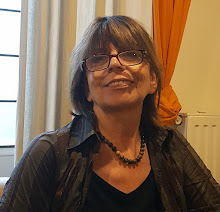http://coaching2success.blogspot.ro/2013/01/what-do-you-really-want-tim-gallwey-1.html
http://coaching2success.blogspot.ro/2013/01/what-do-you-really-want-tim-gallwey-2.html
8. There is a focus on coaching skills management. How is it different from leadership skills management?
a.
I don’t know of an essential difference.
9. How could be
coaching applied in an educational system to prevent reinforcing Self 1 and to
strength Self 2? Is it a matter of a right age?
a.
I believe that in general, the priorities of
education could be changed from teaching subject matter to creating a love for
learning in the given subject.
i. The problem with the
traditional reward system is that students who don’t know are made to feel bad
about not knowing. Then they identify themselves as stupid and live up to their
low expectations of themselves. This keeps them from inquiring and wanting to
learn.
ii. If it were considered a
strength to know when you don’t know or understand, self-judgment could be
greatly decreased and self 2 learning increased.
10.
In your book “Inner Game of Work” one of the most important aspects is
mobility. You assert:”A person who
recognizes the importance of mobility is not satisfied with being in any flow,
it must be in the flow of their choice, heading where they want to go.” On the other hand
you do agree with Mihaly Csikszentmihalyi in his description of performance as a ”flow
state”. Did you mean ‘being in the flow’ is not the only stem of Self 2 at work?
a.
“Flow” describes the way of working, but not the direction or goal. Self 2 is content when the end of working
and the means of working are aligned.
11.
You work with Sir John Whitmore, Alan Fine and Myles Downey in
developing Inner Game and GROW model. In a recent post on his website, Mr
Downey wrote: “No one has the right to define coaching, at least not in the sense of how
it is done – a particular model or approach.” What is your opinion on
this aspect?
a.
Note: The first sentence is not really true and might be best to omit
it.
b.
I work with Myles Downey on the development of an electronic coach (see
theinnergame.com) and believe I understand what he means. There is no individual or body that has
authority over the coaching profession. This is the beauty of where the
coaching profession is at right now.
It’s an emerging profession that is not fully defined. Therefore there is lots of room for
experimentation It is ultimately the
coaches that will succeed in defining coaching by their actions. This is a big responsibility.
12.
If you it will be now the moment you start writing Inner Game. It will
be “Inner Game of…”what? What would be different?
a.
The Inner Game of Stress was published in 2010. There would not be too much new. Perhaps I could write a companion book to
the Inner Game electronic coach, about how people could get the most out of
it.
13.
In the last 10 years people’s ways to communicate have changed
dramatically. Are you planning a new book on the issue – Inner Game of Social
Media? Anyway, you and Mr Downey have just launched an Inner Game eCoach.
a.
It is true that a new media for communication has emerged, but it
doesn’t change the basics of communication.
The internet is a way of distributing communication instantly and
widely. It is because of this fact
that Myles Downey and I thought that some of the benefits of coaching could be
distributed to a much wider audience at the fraction of the cost of live
coaching. This is not an attempt to
replace live coaching, but give millions of people access to coaching that have
had none.
14.
There are 37 years since you launched The Inner Game of Tennis. I’ve
read somebody naming you “grandfather of coaching”. As a “grandfather-coach in
progress”, what would be a question from a “niece” for you to grow?
a.
Same old question – “What do you really want?”
b.
How can games and simulations be best used by the coaching profession?
c.
What are the most promising applications of electronic coaching in the
corporate world.”
d.
How can coaching best address the human domain of feeling?
I would have to grow in knowledge and clarity to answer well any of
these questions. 



